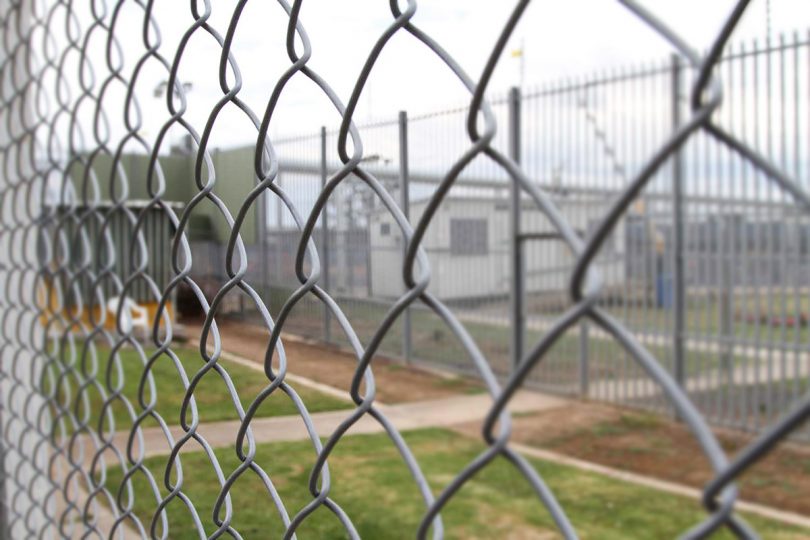
Batemans Bay’s David Degning remains in detention at Villawood in Sydney. Photo: WikiCommons.
A report that Batemans Bay grandfather David Degning has a more serious criminal history than was first reported here comes with mixed feelings for me.
In the midst of Anzac Day, News.com.au pointed to a suspended prison sentence Mr Degning received for a sex offence.
“His serious offence dates from 2012 and resulted in a prison [suspended] sentence being imposed, but news.com.au cannot reveal the details because it is subject to a court suppression order,” Ally Foster and Candice Sutton report.
No other details were published or are available, however, I have been able to reliably confirm what’s been printed.
In earlier stories, I pointed to jail time Mr Degning served as a 21-year-old for theft. I understand that sentence to have been three months, and subsequently, he received a 12-month suspended sentence for drink driving offences, the last of which I believe was in 2015.
For many, those charges were enough reason to deport him.
News that he also had a suppressed sex offence on his record comes as a blow to me as the teller of this story and perhaps those who were advocating for Mr Degning directly, most notably the 2480 people who signed a Change.org petition lobbying Immigration Minister Peter Dutton to keep Mr Degning in Australia.
Jody Warren, who has known Mr Degning for 30 years says she is disappointed to learn of the sex crime. “But at the same time he has already been tried for that and for him to then be taken out of his home at 5 o’clock in the morning, and put in detention ahead of being deported – I find that quite frightening,” she says.
To be clear, his crimes are unacceptable and I am pleased that the Australian legal system has dealt with Mr Degning and have acknowledged the impact these crimes have had or could have had on victims and the wider community.
What I and others have argued for during the evolution of this story is the need for further scrutiny of the Immigration Department’s ability to deport a man born in the United Kingdom but who for 50 of his last 58 years has lived in Australia.
Mr Degning’s solicitor, Stephen Blanks is also the President of the NSW Civil Liberties Council. “The way in which the Minister is implementing this policy pays no regard to the human rights of the families and children who are affected by the deportation of the visa holder,” he says.
“These are people who are regarded as being part of the Australian community, it is only a legal technicality that they are not Australian citizens and the Minister is exploiting that legal loophole mercilessly,” Mr Blanks says.
The Department of Home Affairs and Immigration has so far declined to comment directly on Mr Degning’s case but has pointed to the powers of the Minister and the Department.
“There are strong provisions under section 501 of the Migration Act 1958 that allow the Minister or a delegate to refuse or cancel a visa if the person is considered to not be of good character,” the spokesperson says.
“A person can fail the character test for a number of reasons, including but not limited to where a non-citizen has a substantial criminal record.”
In questioning by the ABC in December 2015, Mr Dutton said he would not apologise for taking a tough approach.
“Frankly they’re detracting from the Australian society, not adding to it,” the ABC reported.
“They should be removed from our shores as quickly as possible.”
Based on his criminal history, it would seem Mr Degning failed the Department’s character test, which resulted in 16 Border Force offices entering his Batemans Bay home at dawn on January 25 this year, putting him in handcuffs and taking him to Villawood Detention Centre in Sydney, where he remains.
“We have to question these powers because where will it lead?” Ms Warren says.
“There has to be some sort of consensus as to whether or not this is what the Minister should be allowed to do.”
Mr Degning’s character aside, the question in my mind and what is also being suggested by Ms Warren and Mr Blanks is whether the powers of Section 501 and the Immigration Minister are appropriate and fair, with respect to Australia’s sense of justice and proper process.
“Australia is a country founded on the idea that people are not bound by a criminal history for the rest of their lives,” Mr Blanks says.
“Australia has a proud convict history which shows that people who are convicted of serious offences can redeem themselves and make a good life and contribute to the building of the nation.”

David Degning and his daughters Rachael and Sharon. Photo: Sharon Degning.
Speaking earlier, Sydney-based Immigration Lawyer and Registered Migration Agent, Rebecca Wallace was unwilling to comment directly on individual cases but says the Minister and his Department have acted unreasonably in a large number of recent cases involving the refusal or cancellation of visas under the provisions of Section 501.
“People just presume that the Government will act fairly or rationally, but I don’t believe this has occurred in number of cases in the last three years,” she says.
Ms Wallace, from Corby Wallace Pty Limited, says the number of visas cancelled on character grounds since new powers came into play in December 2014 has increased by over 1400 percent, and a significant number of people who may have met character requirements previously are now finding themselves exposed.
“I recommend anyone getting these notifications to be making contact with qualified immigration professionals straight away,” she says.
And for anyone who considers themselves to be a “Ten Pound Pom” like Mr Degning, it might be wise to get advice on formalising citizenship – especially if you have a criminal record.
Ms Wallace says New Zealanders and Europeans are two groups who have been particularly impacted by Section 501.
The Australian Human Rights Commission echoes those concerns, “The Commonwealth Ombudsman has suggested that the use of section 501 to cancel the visas of long-term permanent residents goes beyond the original intention of the provision,” the Commission’s 2013 background paper says.
“Long-term permanent residents who have their visas cancelled may be removed from Australia and sent to a country where they have spent little time (or never lived); where they do not speak the language; and where they have few or no social or family connections.
“They may also face separation from their children, family and friends in Australia,” the Commission says.
In one example the Commission points to, they say the UN Human Rights Committee considered the deportation of a 30-year-old man back to Sweden a breach of his rights under article 12(4) of the International Convention of Civil and Political Rights, because he had been deprived of the right to enter his ‘own country’, his own country being Australia, where he had lived since the age of 27 days.
The New Zealand Government has also raised the issue, as reported by The Guardian. NZ Corrections Minister Kelvin Davis has described the treatment and detention of New Zealanders on Christmas Island as “nonsense”.
Mr Davis told Radio New Zealand that the way Section 501 was being used was “inhumane” and that the “laws contravene any sorts of human rights,” as reported by The Guardian.
“Those fences and gates that are keeping people in are also keeping real scrutiny out,” he said.
Mr Degning was due to be deported on April 26, he remains in detention ahead of a Federal Court hearing in June, where the Minister’s decision will be challenged by Mr Blanks.
No one is defending his or anyone else’s criminal activity. What I call on you to consider is your acceptance or otherwise, that people who have lived the bulk of their adult lives in Australia, people who have essentially been made or broken in Australia, should be deported back to their mother country, absolving Australia of any responsibility, and in the process moving outside Australia’s established legal system and expectations.
Where will that sort of abandonment of long-held principles arise next?












